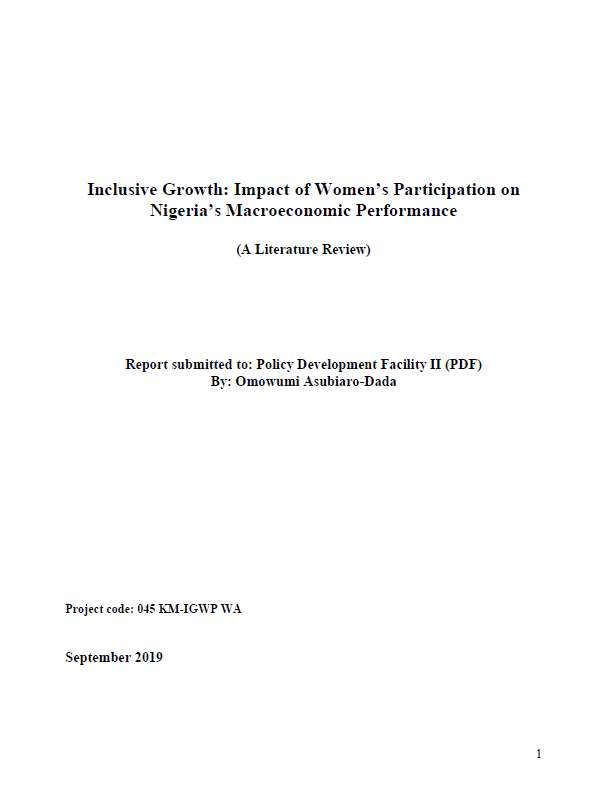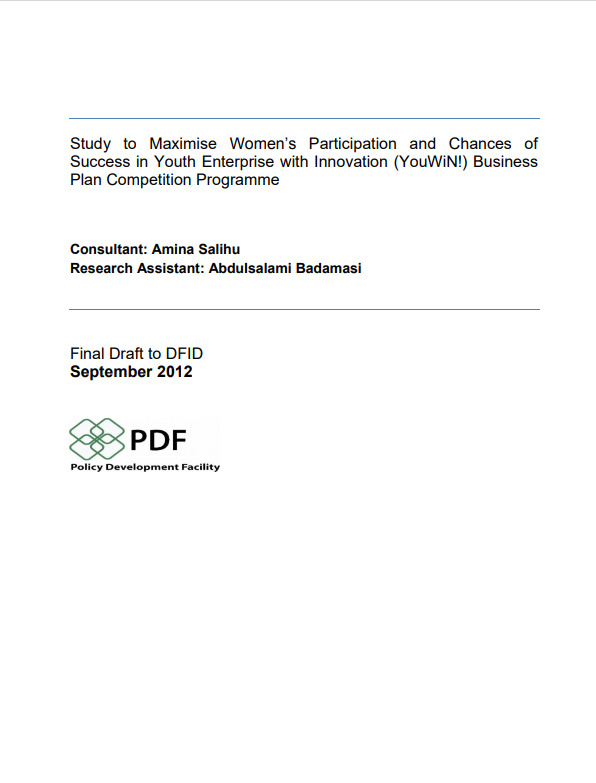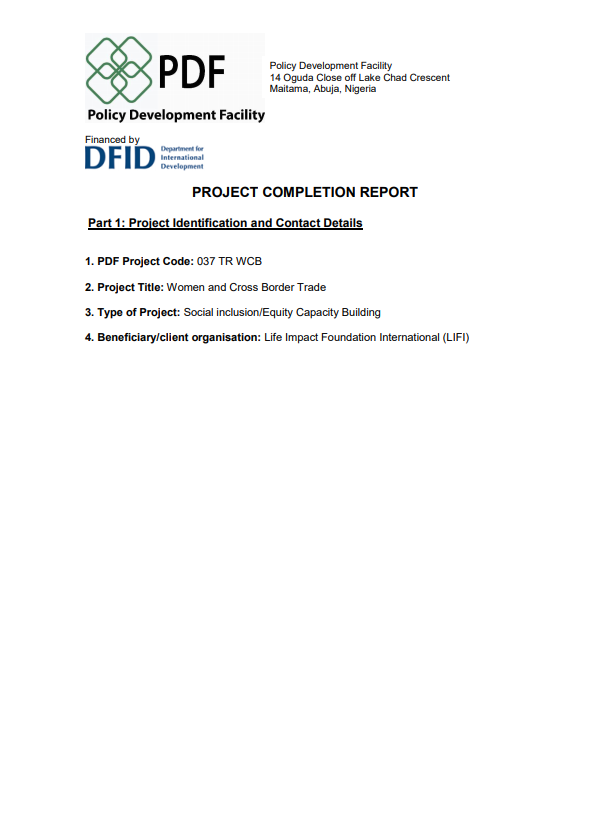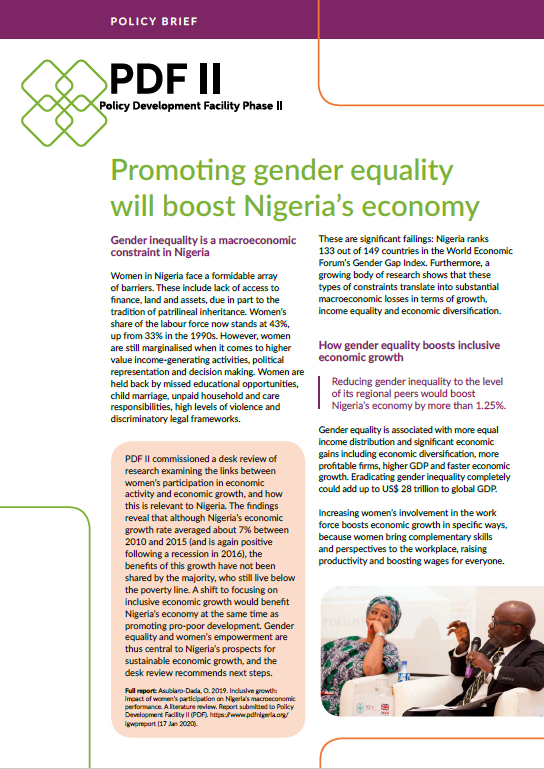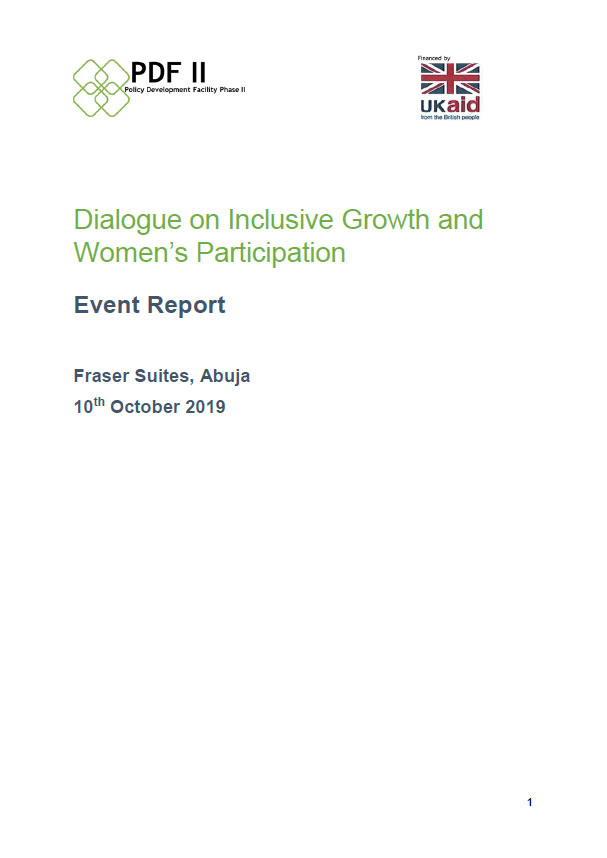Despite strong economic growth, Nigeria has not been able to address gender inequality. To examine the consequences of this imbalance and inform steps to promote women’s economic empowerment, Policy Development Facility Phase II commissioned a desk review. This report uses examples from India, Japan, Rwanda and Peru to establish links between women’s participation in economic activity and economic growth and relate the results to Nigeria. This is followed by an analysis of the legal and socio-cultural barriers to the economic participation of women in Nigeria, and key recommendations to ensure inclusive growth.
Inclusive growth: Impact of women’s participation on Nigeria’s macroeconomic performance
Associated resources
This is a study carried out to provide the management of YouWiN with an improved approach they can adopt to encourage women’s participation in the business plan competition. It was conducted in 2012 with the support of FCDO (formerly DFID). Based on the findings and lessons from the study, recommendations were made for consideration by the management of the YouWiN programme to increase the number of women participating, winning grants and running sustainable businesses under the Youth Enterprise with Innovation in Nigeria Programme (YouWiN!)
This study conducted by PDF with support from FCDO (formerly DFID) shows that women who engaged in cross border trade contribute to food security by trading food products from areas of surplus to areas of deficit. The paper reveals that depending on how this trade is organized, these women have the potential to contribute significantly to household earnings and resources. This empowers women by giving them financial independence and control of their own resources.
This policy brief provides a national and global context for the recommendations for Nigeria emerging from a desk review of research on the links between women’s participation in economic activity and economic growth.
This event report summarises a dialogue to discuss women’s participation in Nigeria’s economic growth and address challenges to their empowerment.

